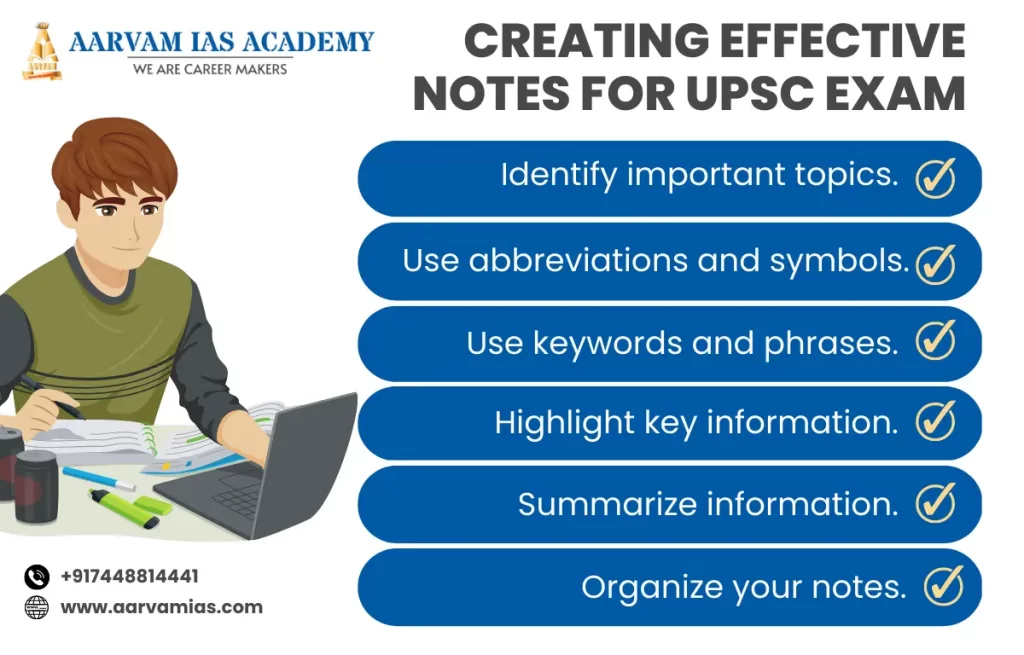The Union Public Service Commission (UPSC) Civil Services Examination is one of the most competitive exams in India. It requires a tremendous amount of preparation and hard work to crack. Solid notes for the UPSC Exam strategy can greatly enhance your chances of success in the exam. This is why note-taking is so important for UPSC exam preparation.
Benefits of note-taking for UPSC exam preparation
Making Notes for the UPSC Exam is a powerful tool for retaining information. When you take notes, you are actively engaging with the material and processing it in a way that helps it stick in your memory. This makes it easier to recall the information later on when you need it.
Note-taking also improves focus and concentration during study sessions. When you take notes, you are forced to listen attentively and absorb the information presented. This can help you avoid distractions and stay focused on the task at hand.
Another benefit of Making short notes for UPSC Exam is that it provides a quick reference for revision. When you have all of your notes organized and in one place, it is easier to find what you need when you need it.
Additionally, note-taking encourages active learning and participation in class or self-study. When you take notes, you are actively engaging with the material, which can help you understand it better and retain it for longer.

Techniques for effective note-taking
There are several techniques for effective note-taking that you can use to make the most of your study time. One of the most popular techniques is summarization, which involves condensing large amounts of information into a summary.
Another popular technique is mind mapping, which involves creating a visual representation of information to help you understand and remember it better. Outlining, highlighting and underlining, and the Cornell Method are also effective techniques that you can use to take notes.
Best practices for organizing notes
Organizing your Notes for the UPSC Exam is just as important as taking them. When your notes are organized, you can find what you need quickly and easily. To organize your notes, start by categorizing them.
This could mean grouping short notes for UPSC Exam by subject, topic, or class. Next, label your notes so that you know what they are about. Finally, be consistent in your note-taking format so that your notes are easy to read and understand. It is also important to regularly review and update your notes to ensure that they are accurate and up-to-date.
Best practices for organizing notes, including categorization and labeling
- Organizing your notes is a crucial part of effective note-taking. It helps you easily locate and revise the information when needed.
- Categorization: Group your notes by subject, topic, or class. This will help you quickly locate the information you need and keep related notes together.
- Labeling: Label your notes so you know what they are about. Use descriptive titles, date stamps, or headings to identify the content of each note.
- Consistency: Be consistent in your note-taking format. Use the same symbols, abbreviations, and format for each note to make them easier to read and understand.
- Regular review and update: Regularly review and update your notes to ensure that they are accurate and up-to-date. This will help you avoid reviewing outdated information and prevent confusion during revision.
Conclusion
In conclusion, note-taking is a crucial part of UPSC exam preparation. By taking effective notes, you can retain information better, improve focus and concentration, provide a quick reference for revision, and encourage active learning and participation.
When it comes to note-taking, it is important to develop a personalized strategy that works best for you. So, make note-taking a regular part of your study routine and see the difference it can make in your UPSC exam preparation.
